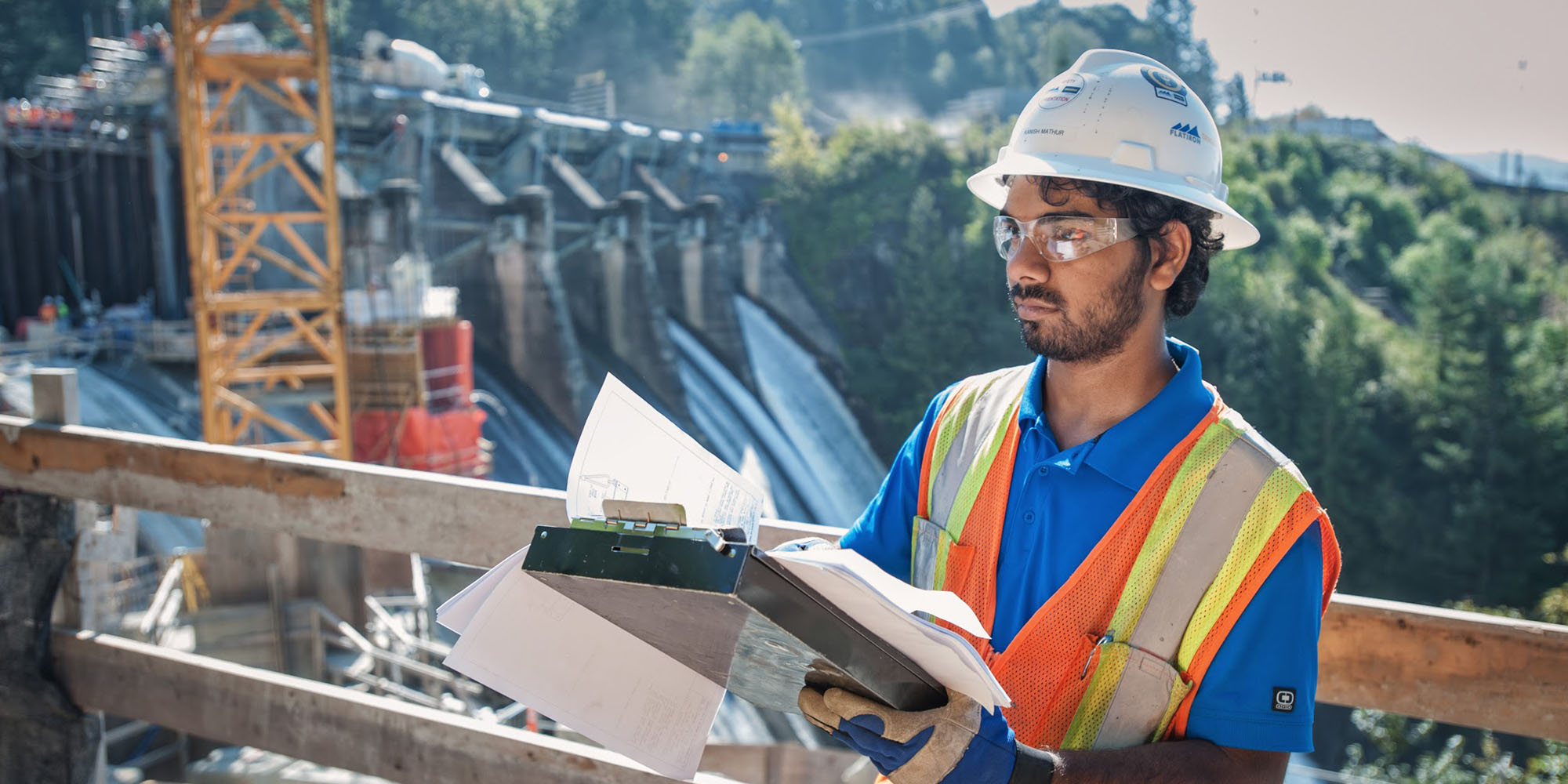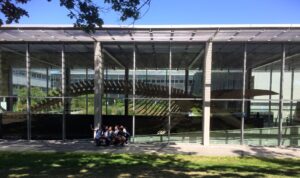UBC Engineering’s world-class faculty and researchers are committed to an instructional approach that is varied, experiential and engaging. This multi-faceted approach makes UBC engineers stand apart, on a firm foundation from which to build an exciting and rewarding career.
What you might expect/course format
While each course varies based on the subject and instructor, our VSP Packages feature:
- Interactive in person lectures
- Hands-on labs, fun and practical demonstrations
- Team-based assignments
- Fun social activities
- Tours of industrial facilities (some programs)
- Experience with industry standard software
July 2025 Course Packages
Modern Civil Engineering Software
Introduction to software and computer-aided graphic design tools for solving civil engineering problems, like basic structural analysis, approximate analysis of structures, and calculation of forces, stresses, and displacements using modern computer software. The course covers topics in the civil engineering software, including Building Information Modeling (BIM), Geographical Information Systems (GIS), Structural Analysis and Design Software, Transportation Planning and Traffic Simulation, Construction Project Management Software, Planimetric Surveying; also, an intro to advanced computer applications in Civil Engineering, such as Artificial Intelligence (AI) and Machine Learning, Cloud Computing and Big Data Analytics, Digital Twins and Smart Infrastructure, Augmented Reality (AR) and Virtual Reality (VR) in Construction, Robotics and Automation in Construction, 3D Printing and Additive Manufacturing, Advanced Visualization and Data Presentation, and Blockchain Technologies.
Practical Projects using Civil Engineering Software
The course runs in a computer laboratory and includes introductory lessons and tutorial sessions, covering some of the commonly used basic civil engineering computer programs in both industrial projects and academic research. These include software for data acquisition, signal processing, numerical analysis, and analytical studies, such as Excel, Mathcad, MATHLAB, RISA 2D, ETABS, SAP2000, and S-FRAME.
In addition, the course would introduce some of the basic engineering software for graphical visualization of civil infrastructures, such as Visio, SketchUp, and AutoCAD, as well as BIM, ARC GIS, etc. The laboratory course aims to demonstrate the implementation of concepts/applications discussed during the lectures and the students will learn the capabilities of the latest computer software for civil engineering analysis. A hands-on capstone project would conclude the course, which involves students using modern civil engineering surveying equipment out in the field for a few days.
Prerequisite: No prerequisites
Structural Materials and Concrete Technology
Our society heavily invests in high-performance civil infrastructures, focusing on carbon-neutral construction materials and innovative cement and concrete composites. As concrete technology advances, there’s a rising need for green buildings, smart structures, and carbon-neutral materials in smart, resilient cities.
This course explores advanced structural materials and concrete technology, covering smart materials for new constructions and infrastructure repair. It covers properties of Civil Engineering materials like Aggregates, Portland Cement Concrete, Steel, Wood, and introduces specialized concretes including Fiber Reinforced Concrete (FRC), High Performance Concrete (HPC), and shotcrete.
Topics include advanced mineral and chemical admixtures for modern concrete, understanding mechanical response and durability. Emphasis lies on material structures, mechanical properties, and endurance. The course features field visits to construction sites and industry expert presentations.
Laboratory Testing of Structural Materials
This course, conducted in our state-of-the-art structural materials research facility, the UBC Sustainable Infrastructure Research Group (SIERA), offers hands-on experimental projects for students to explore Course 1’s structural materials. Within this laboratory setting, students collaborate in groups, tackling real-world issues pertaining to Portland cement concrete, asphalt concrete, geopolymer, timber, and steel.
Identifying key challenges in these materials’ performance, students conduct both laboratory and field experiments. Their focus encompasses studying structural concrete elements like beams, girders, and columns. These experiments involve variations in reinforcement and repairs, incorporating comprehensive testing, analysis, and computer modeling.
With an emphasis on practical application, this laboratory-based course integrates site-visits and external consultations as essential components in understanding and exploring structural materials.
Prerequisite: No prerequisites
Structural Challenges and Solutions
In this compact course, we’ll navigate the fundamental principles of structural analysis, mechanics of materials, seismic design essentials, innovative vibration control methods, and diverse structural systems. This concise yet comprehensive course offers an overview of these key aspects in structural engineering. Students will explore the basics of analyzing structures, gain insights into seismic design considerations, and examine novel techniques for safer construction practices. Additionally, the course will introduce various structural systems, providing a broad understanding of their applications and suitability in different scenarios. By the course’s conclusion, students will have acquired a foundational understanding of these crucial elements in structural engineering, setting a robust platform for further exploration and application in the field.
Seismic Design and Competition
Engage in hands-on structural engineering in this dynamic lab course. Students work collaboratively in teams to design and construct bridge structures and tall building models using balsa wood. The highlight of the course involves the setup of UBC’s shake table, simulating a cityscape, where student teams mount their structures for a simulated earthquake experience. Using recorded historical ground motions, the shake table replicates the effects of a natural earthquake, causing damage to the model city. Structures that withstand the simulation emerge as winners, showcasing resilience and design excellence. This immersive experience combines practical construction with seismic engineering, encouraging innovative design solutions and rewarding the most robust structures with prizes at the end. Students will be fully mentored at the building workshop in order to successfully apply the knowledge that they gain in Course 1 to design, analyze, and build their models for the big shake out!
Prerequisite: No prerequisites
Entrepreneurial Thinking for Engineers
This is an introductory course specifically tailored for undergraduate engineers of any specialty, who would like exposure to the field of entrepreneurship. This course is team-based and provides experience-based exposure to the process of starting entrepreneurial ventures, as well as examining the challenges facing any would-be engineering entrepreneur in the real world. The emphasis in this course is on introducing various tools, concepts and techniques used in developing business models, assessing potential risks and challenges, and exploring strategies for success, from an engineer’s point-of-view.
Leadership and Engineering
This course utilizes the four engineering leadership domains of self, teams, organization, and society to frame discussions connected to complex decision-making as it applies in the real world of a practicing engineer. Meta-themes connected to sustainability, professionalism, and equity (for example) are embedded throughout the material, and these topics (as well as many others) are explored through self-reflection, case analysis, class discussions, and other high-impact activities. This is an introductory course for undergraduate engineers or scientists of any specialty.
Prerequisite: No prerequisites
For more information
For VSP Civil Engineering-specific questions, please email undergradsupport@civil.ubc.ca.
Student testimonials
– Ducheng Lu, VSP Applied Science Student
– VSP Applied Science Student, 2019



